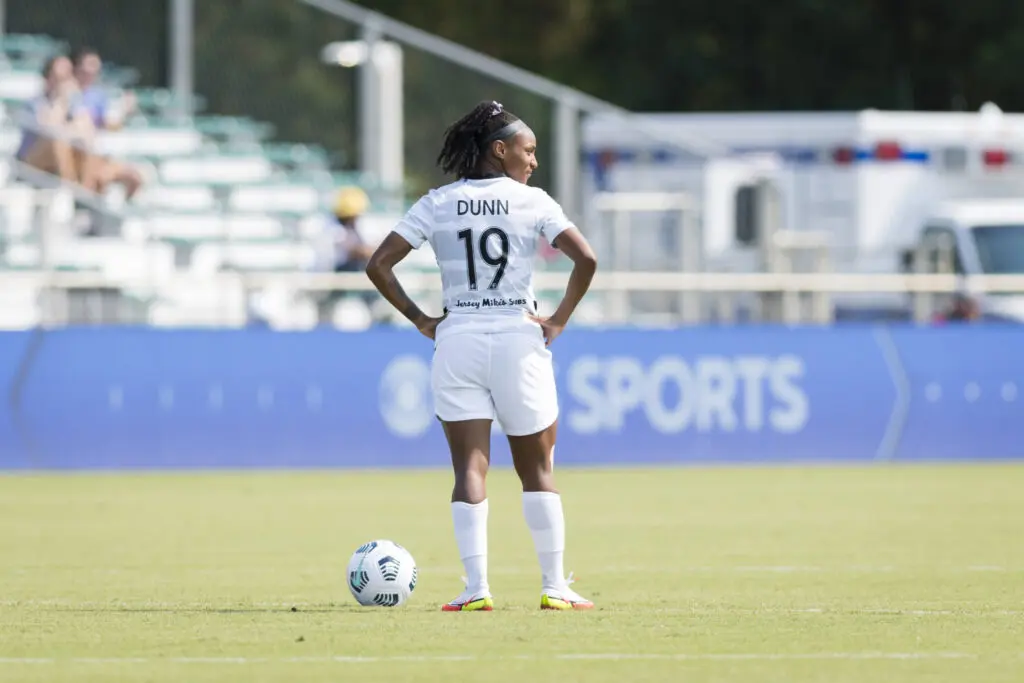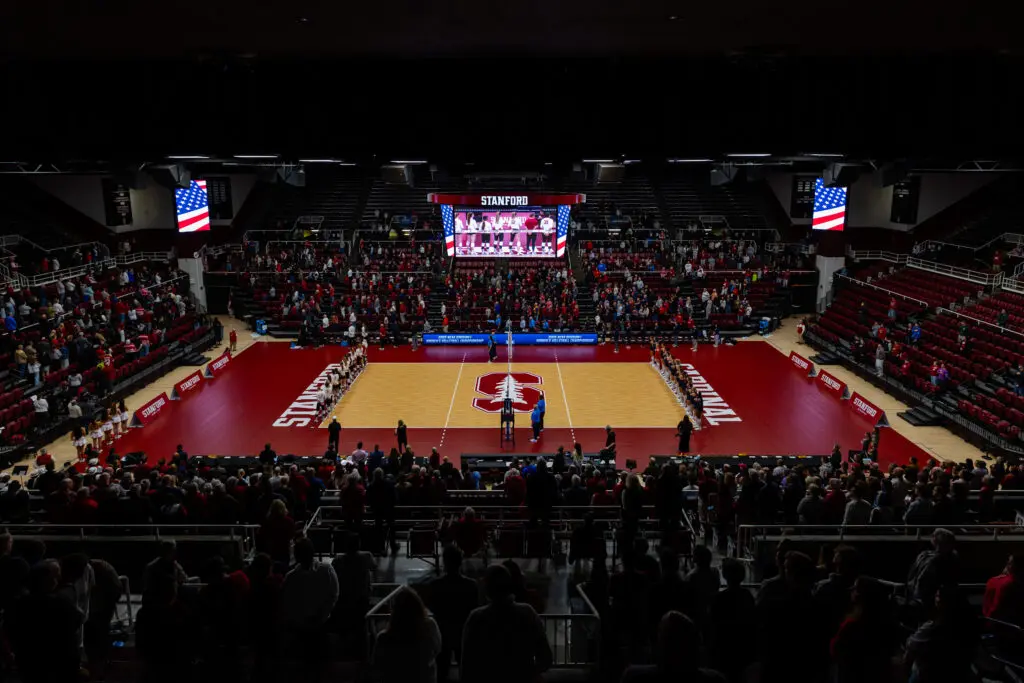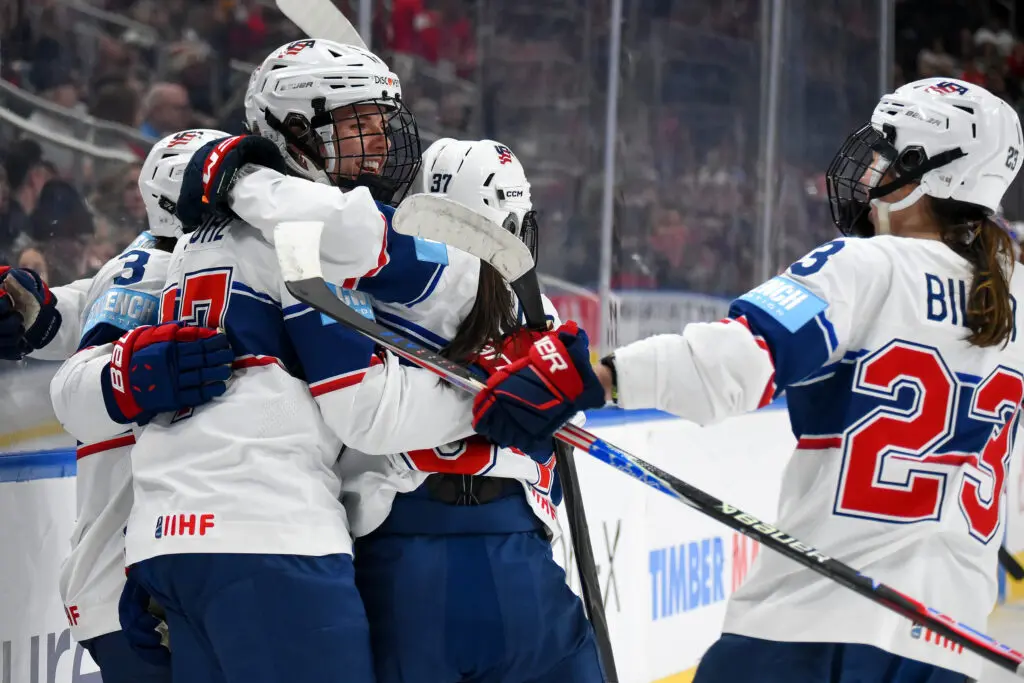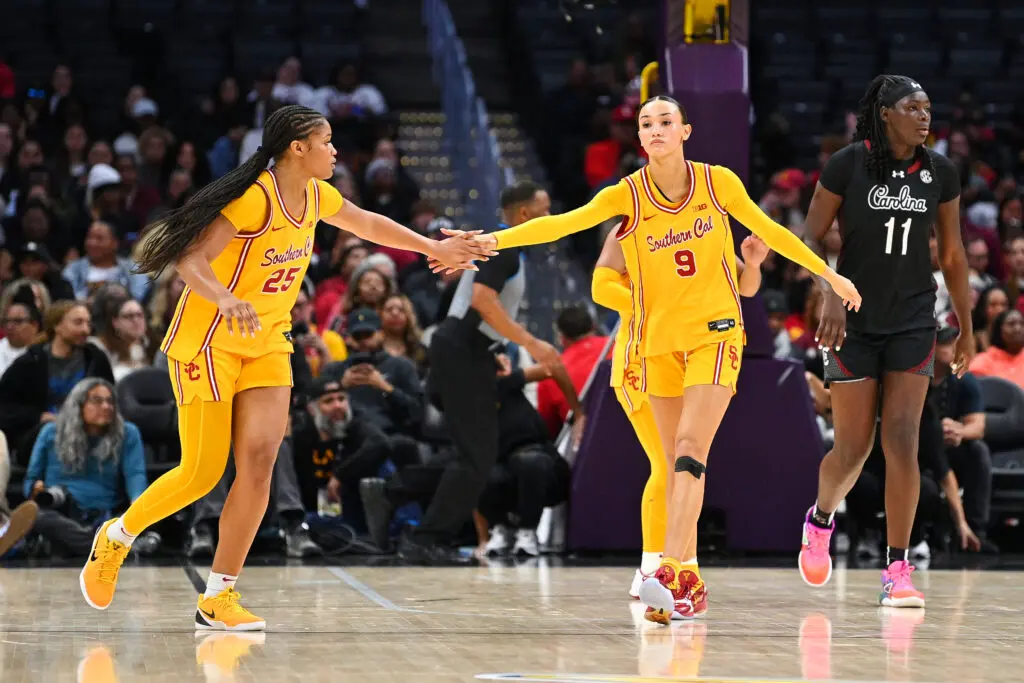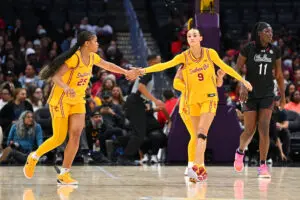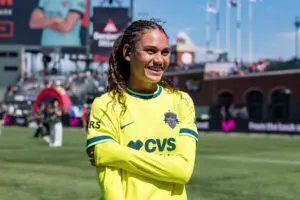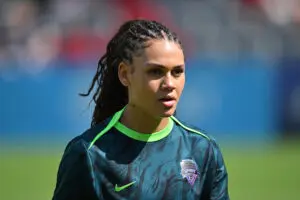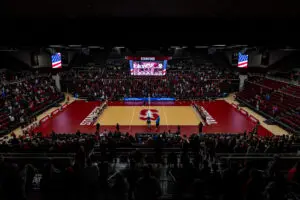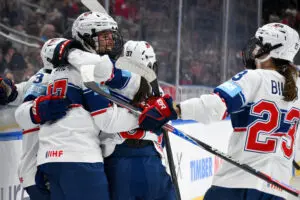Pro athletes are speaking out about abortion bans in the United States, giving a look into a future in which where an athlete plays could be determined by where states stand on reproductive rights.
USA Today Sports interviewed 30 current and former professional athletes in women’s sports to gauge how the changes to reproductive rights have affected their career decisions.
For USWNT and Portland Thorns star Crystal Dunn, it’s simple.
“Playing in a red state right now, I would say that’s out of the question,” she told USA Today. “It’s up to all players in the league to protect each other.”
Dunn, who recently gave birth to a son, noted the physical and emotional toll of pregnancy. Returning to soccer also took its toll, she said. And even though she made the choice to have a child, she doesn’t want anyone else to be forced to do so.
“If I didn’t want to continue with the pregnancy because my career could be disrupted, that should be my choice,” Dunn said. “I just don’t think if you find yourself pregnant anyone should be able to force you to keep that baby — especially a man.”
There’s also a question of whether the bans will affect free agency in women’s leagues.
“I had (someone) ask me, ‘Will this impact free agency? Will players not want to go to the Dallas’ and Atlantas of the world?’” newly retired WNBA legend Sue Bird said. “For every woman, that’s a real thing, to think about where you are going to live based on your rights.”
NWSL commissioner Jessica Berman would not say if the league would block trades based on a player’s wishes with regard to reproductive rights but did say it would be open to a conversation.
“Certainly in a situation like that, we would want to have a conversation about how we can ensure that (everyone) feels safe and supported to get the medical care they might need in the place where they’re being asked to live or work,” Berman said. “The league is there as a safety net, to ensure that her medical needs would be addressed appropriately.”
As leagues like the WNBA and NWSL also look at expansion, league leaders are taking abortion restrictions under consideration when it comes to selecting homes for new franchises.
“At the end of the day, it’s a business decision, and they’re going to do what makes the most money,” Las Vegas Aces forward A’ja Wilson said. “They need to understand what women in the WNBA stand for, so it is something they need to look into.”
There’s also the matter of collegiate athletes. A large number of elite women’s programs reside in states with abortion bans. There are concerns over whether this will begin to affect recruiting, and also college team’s abilities to fill out their staffs.
Some schools haven’t addressed the issue, and outdated school policies regarding pregnancy – include the NCAA’s, which hasn’t been updated since 2008 – have led to “major panic,” one Power Five coach told USA Today.
While Wilson, a two-time WNBA MVP and former South Carolina standout, said she would “probably” still have attended the school given the situation, she would not allow her daughter to attend.
“No, I would not let my child go there,” Wilson told USA Today, without hesitation.
Chicago Sky All-Star Candace Parker was hesitant about if she would allow her daughter to attend Tennessee, where she won back-to-back NCAA championships in 2007 and 2008.
“I want to be able to say that my daughter has the same rights over her body that my son does,” Parker said. “I don’t know today that I can say that.”
Leagues and athletic organizations are lending support in the wake of the restrictions to abortion access.
WNBA commissioner Cathy Engelbert said that the league will “absolutely” reimburse travel expenses for any league employee and that players have abortions covered through their insurance. The U.S. Olympic & Paralympic Committee has also promised access to “family planning benefits” in any state through insurance and will cover “reasonable travel expenses” if such services are unavailable.
But athletes recognize their privilege and the fact that such promises are not made to most American women.
“I don’t feel like I’m safe because I’m from California or I live in Connecticut,” said Connecticut Sun player DiJonai Carrington. “The concern remains the same — if we’re not all safe, then none of us are safe.”
